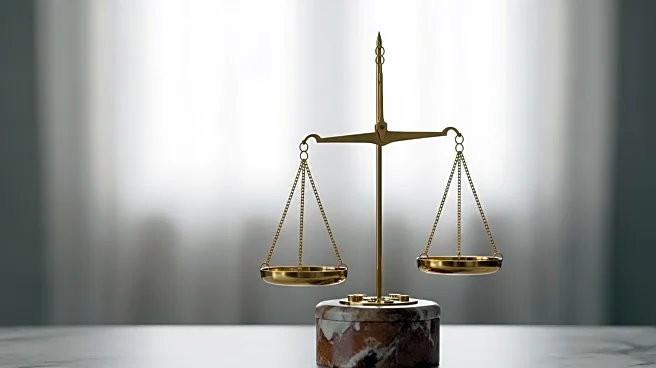What is the story about?
What's Happening?
The Supreme Court has decided not to block a lower court ruling that permits a 14-year-old transgender student in South Carolina to use the school bathroom aligning with his gender identity. This decision comes after South Carolina sought an emergency reversal of a preliminary injunction that allowed the student to use the boys' restroom while challenging the state's bathroom restrictions for transgender students. The court's denial is not a judgment on the legal merits but rather on the standards for emergency relief. Justices Clarence Thomas, Neil M. Gorsuch, and Samuel A. Alito Jr. expressed dissent, favoring the state's position. The case is significant as the Supreme Court is set to hear another case regarding transgender athletes, which may influence future rulings on similar issues.
Why It's Important?
This ruling is pivotal in the ongoing debate over transgender rights in the United States, particularly in educational settings. It underscores the tension between state policies and federal court decisions regarding gender identity and discrimination. The decision may influence public policy and legal standards concerning transgender students' rights, potentially affecting similar cases nationwide. The ruling also highlights the broader societal and legal challenges faced by transgender individuals, as states like South Carolina attempt to enforce policies that restrict bathroom access based on biological sex.
What's Next?
The Supreme Court's upcoming case on transgender athletes could set a precedent that impacts future rulings on transgender rights in schools. Stakeholders, including civil rights groups and state legislatures, will likely continue to engage in legal battles over these issues. The decision may prompt further legislative actions or challenges in states with similar restrictions, as advocates push for broader protections under Title IX and the Equal Protection Clause.















